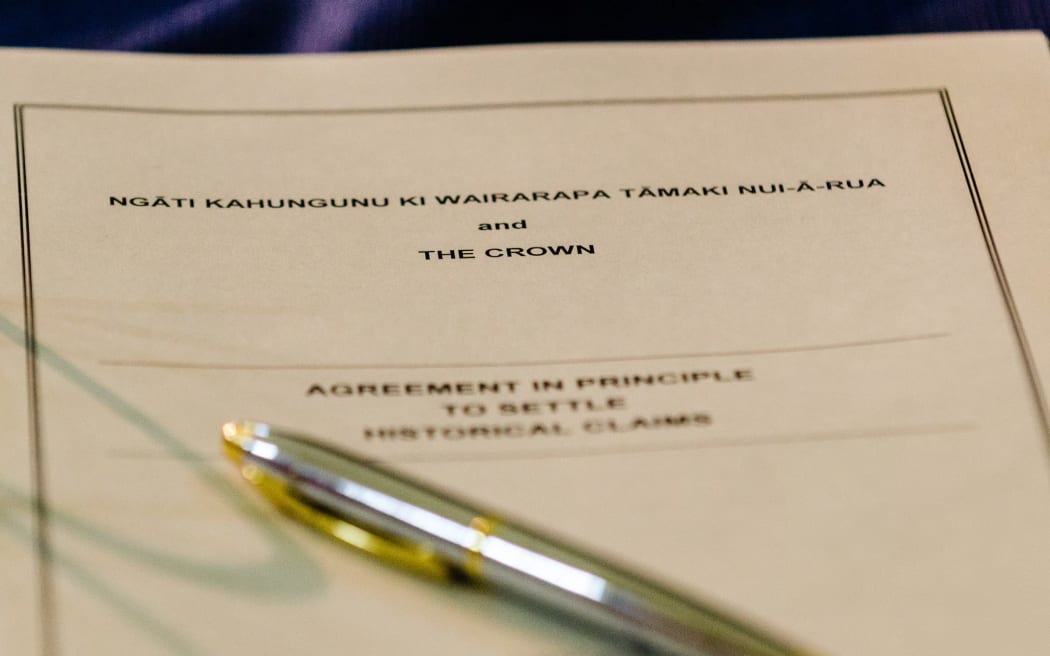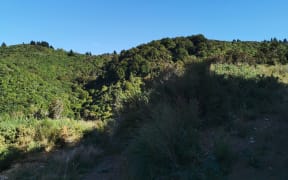A bill that would formalise a treaty settlement with Wairarapa iwi has passed its first reading in Parliament.

Ngāti Kahungunu ki Wairarapa Tāmaki nui-a-Rua settlement documentation. Photo: Supplied
Ngāti Kahungunu ki Wairarapa Tāmaki nui-ā-Rua are a group of interconnected hapū that stretch from Dannevirke to Lake Wairarapa.
The negotiation process has been long, with several stops and starts.
But the settlement agreed includes an apology to Ngāti Kahungunu ki Wairarapa Tāmaki nui-ā-Rua, $115 million in redress, as well as the opportunity to buy Crown properties, including 70 percent of the Ngāumu Crown Forest.

Andrew Little Photo: RNZ / Angus Dreaver
It also includes the vesting of 27 sites of cultural significance, and the restoration of 30 sites to their original names.
"This is an important day for ngā uri o Ngāti Kahungunu ki Wairarapa Tāmaki nui-ā-Rua and the Crown in reaching this milestone after many years of dedication and hard work," Treaty Negotiations Minister Andrew Little said in a statement.
The historical account contained within the settlement details more than a century of injustices, starting in 1845 when Ngāti Kahungunu were forced to cede tens of thousands of acres at Maungaroa under threat of Crown invasion.
Ngāti Kahungunu were then put under sustained pressure to sell their remaining land, with the state machinery forcing Māori to give up pastoral leases, through which they had sustained a thriving economy, and the Native Land Court dividing title.
In 1853, the government promised Ngāti Kahungunu that it would set up a fund with the profits made from land sales. This, it said, would provide education, health and economic benefits.
The fund never arrived, and neither did any benefits.
In 1896, to protect and preserve Wairarapa Moana, Ngāti Kahungunu gifted the lake to the Crown on the promise that it would create a reserve surrounding it. But this promise was also never fulfilled.
Today, they are virtually landless, and much of what they retain lacks legal or practicable access.
Having passed its first vote, the bill is now before the Māori affairs select committee, which will hear submissions.





